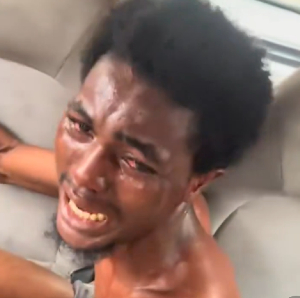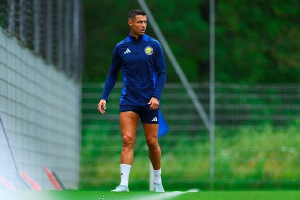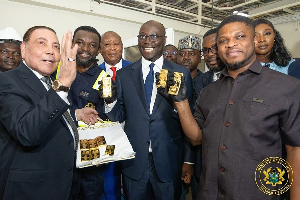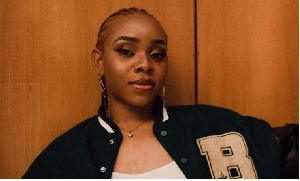By Dr. Michael J.K. Bokor
E-mail: mjbokor@yahoo.com
June 26, 2010
I want to give a brief overview of the situation in the various political camps to throw more light on my analysis of the place and role of political parties in our constitutional democracy. I intend to show why each party is what it is and what its particular locus and modus operandi means to our democracy.
The National Democratic Congress (NDC)
The place of the NDC in Ghana politics is particularly intriguing because of its perception as a “Third Force.” We all know its origin and can tell the watershed from which it draws its strength—the June 4 Uprising and Rawlings’ ambition to clean the military’s own stables “the Ethiopian Way” (in his own words). Rawlings’ overthrow of the Limann administration and the emergence of the PNDC might be seen as an extension of the June 4 house-cleaning efforts; but it was more of an avenue for experimentation in military-civilian governance that had its own chequered lifespan in the 10 years that Rawlings ruled as Ghana’s “strongman” before ushering in the 4th Republic. When he metamorphosed into a civilian after lifting the ban on partisan politics on May 18, 1992, he came out with the NDC. In principle, the NDC is the brainchild of Rawlings and its fate owes much to him.
Membership of the NDC is variegated, made up of adherents of the June 4 Uprising (both soldiers and civilians), old-guard cadres (still active as the United Cadres’ Front), and new guards (who seem to be at the helm of affairs of the party today). Perceived as a “Congress” as against a “political party,” the NDC consists of pro-Nkrumahist elements and others from the Danquah-Busia tradition. Their different political cultures notwithstanding, these NDC activists consider themselves as bound together for a common purpose—to implement pragmatic policies for national development, be they pro-Nkrumahist or otherwise. No particular ideology determines the NDC’s functions nor is any allowed to hamper efforts to achieve its objectives. Massive support for the NDC is drawn from rural areas where the development projects established by Rawlings still endear him to the hearts of the people.
From one perspective, the NDC comes across as leaning more toward the socialist-flavoured orientation of Nkrumah than the liberal-democratic one that the Danquah-Busia (or United Party) culture upholds. The similarity between the NDC’s agenda for national development and that of Nkrumah is obvious at the level of infrastructural development, whipping up of patriotic sentiments, and adherence to the principles undergirding Ghana’s foreign affairs. From another perspective, the “revolutionary fervor” that undergirds the NDC’s manner of politicking is an elementary fact of political life with which we must reckon.
Those opposed to the NDC have their own reasons but the one that readily comes to mind is their distaste for anything Rawlings. They often refer to the excesses of the June 4 and PNDC eras, especially, and blame Rawlings for their emotional trauma, economic doom, and other forms of hardships. The NDC’s main challenge is how to tackle this spate of demonization to prove its critics wrong.
Doubtless, the NDC is a national party. Election results since 1992 have shown that it enjoys overwhelming patronage from Ghanaians in all the 10 regions of the country. As is evident from the recent polls, voters in eight of the 10 regions rooted heavily for the NDC’s Presidential Candidate. Political fortunes of the party vacillated in the intervening period of the NPP rule (between 2001 and 2008). Its return to power reinforces confidence in the ability of our democracy to endure. But all is not well within the party. The wrong things happening in the NDC that must be addressed include the following:
The NDC has had a huge image problem since its formation. It is hampered by this major inadequacy, which doesn’t augur well for it. The NDC’s strained relations with the Ghanaian media doesn’t work in its favour and strenuous efforts have to be made to reverse this trend.
Being an amalgam of people from different political cultures, the NDC has no specific political tradition of its own and is nourished by the ideals espoused and propagated by Rawlings, whose flirtations with such radical leaders as Fidel Castro of Cuba, Muammar Gaddafi of Libya, Daniel Ortega of Nicaragua, and Denise Sassou-Ngueso of the Congo Republic, give the impression that the NDC is anti-West.
In truth, the NDC has no particular ideology and extends its tentacles to any that will help it prosecute its agenda for survival. Thus, this inability of the party to boast of any specific time-tested ideology leaves it somehow politically blind. That’s a major problem for a political party of this stature, although it may claim to be “pragmatic” in its approach to doing national politics. This inadequacy tends to make the NDC dependent on Rawlings and that may be the raison d’être for whatever Rawlings is doing today to reassert his dominance. The fixation on Rawlings creates the impression of a personality cult, which is not good for the party’s interests, especially in reaching out to floating voters. The party’s re-branding as the “New NDC” for the 2008 elections under the agenda of “Social Democracy” reveals more about this reality and how to break away from its socialist-militaristic past of “populist nonsense.”
Added to that foundational problem, current happenings in the party provide enough food-for-thought. Factionalism is eating deep into the fabric of the party and destabilizing its ranks. We know of so-called factions in the party rooting for its founder, Jerry Rawlings, and another supporting President Mills. There are other splinter groups whose members also have their grievances. The constant trading of insults and allegations suggests that the NDC’s house is divided. In this state of antagonism, the party is gradually losing its focus and making itself less and less attractive to the electorate.
I have been wondering whether by getting at each other’s throat this way, the party’s big-shots don’t perceive the negative fallouts, including the emasculation of their own party or the weakening of its government. Certainly, the government cannot hold if its base (the party) implodes. If the agenda of the anti-Mills elements is to weaken his administration, what do they hope to gain?
More often than not, I wonder whether these party bigwigs don’t see the risk that their morbid bickerings pose to our democracy. Or are they so blinded by their personal desires as to do anything at all with little or no thought for its impact on our democracy? If that is what they think, then, it is a grievous lack of proper judgment on their part. No one must be allowed to sacrifice our democracy on the altar of personal interests. The NDC’s future hangs on how it handles its internal affairs to remain united or steadfast and how President Mills’ government performs to retain public confidence in it.
The New Patriotic Party (NPP)
Unlike the NDC, the NPP boasts of a past that its followers may claim to be proud of but which its opponents will quickly condemn as “scary.” The NPP is nourished by its age-old tap root in the United Gold Coast Convention (UGCC) and the United Party (popularly called “Mate Me Ho”) political culture in the pre-independence era. We need to know that other mushroom political parties opposed to Nkrumah’s Convention People’s Party (CPP) such as the Northern People’s Party, the Muslim Action Party, and other groupings in the Trans-Volta Togoland area provided the substance for the UP.
Traditionally, the UP was regarded as bringing together anti-CPP chiefs, intellectuals, business entrepreneurs, and others who put themselves far above Nkrumah’s “Verandah Boys.” That mentality gave the UP its peculiar Danquah-Busia politico-ideological complexion and a liberal democratic veneer, although it didn’t help it win the pre-independence elections in 1951 and 1954. The UP’s efforts to delay Ghana’s independence and its agitations for federalism detracted from its fortunes and it failed to lead the country. History tells us how the antagonism between the UP and CPP adversely affected national politics in the immediate post-independence period until the collapse of the UP (as a political party) and the subsequent overthrow of the CPP government itself on February 24, 1966.
The collapse and disintegration of the UP didn’t, however, mean the death of its spirit. It still lived on, especially after Afrifa’s NLC disabled the CPP and uplifted the main adherents of the UP family at the time. For the August 1969 general elections, Dr. Busia rejuvenated the UP spirit through the Progress Party but his administration was cut short by the military on Thursday, January 13, 1972.
Like a snake that was writhing in pain but still alive because its head had not been cut off, the UP spirit rebounded in 1979 for the June 18 general elections. Unfortunately, however, its ranks were jolted into disarray by petty rivalries and leadership ambitions. It didn’t come out of that crisis unscathed and ended up crippled. The breaking away by elements under Paa Willie’s United National Convention and the formation of other parties like Col. Bernasko’s Action Congress Party, and Dr. John Bilson’s Third Force Party virtually depleted the UP stock, which made it difficult for its mainstream offspring (Victor Owusu’s Popular Front Party) to outdo the pro-Nkrumahist People’s National Party.
Thus broken down into splinter groups with diverse interests, the UP tradition had little room to function and reckoned with as formidable. Its main proponents either turned attention to their private business or professional concerns or found their way into the military-civilian government after the overthrow of Limann’s PNP administration. Matters seemed to turn over favourably for them at the lifting of the ban on partisan politics in 1992 and Attakora-Gyimah’s Danquah-Busia Club provided the clarion call around which they rallied to form the NPP. Although the NPP lost the first two elections, it continued gearing up and returned the UP culture to power in 2001 after 30 years’ hiatus. The party is in opposition now and gingering up for the 2012 elections.
The problems bedeviling the NPP are rooted in the party’s origin and manner of politicking. Some of these problems are endemic and must be solved adequately to brighten its chances. These problems include the following:
The NPP also has a huge image problem even as can be inferred from its ideological foundation—Danquah/Busia. Desperate attempts to tag “Dombo” to that formula appears not to be washing well with people. It is no exaggeration to say that public perception of it as an Akan party (especially within the context of Asante and Akyim hegemony) does not redound to its image. It was a major issue that worked against Akufo-Addo in the 2008 Presidential elections. Although heavily denied by its functionaries, that perception has stuck and will detract again from the party if it is brushed under the rug instead of being placed on the table and solved. All the current five aspiring Presidential candidates are Akans (four from the Ashanti Region and one from Akyim). This problem of tribalism or nepotism is real and the NPP has an uphill task in disabusing people’s minds that it is not an Akan party.
Unbridled ambition for leadership positions is another problem facing the party. It appears that almost every major player in the NPP sees himself or herself as a potential President of the country and will do all he/she can to seek office. It may hurt some, but let me say that everyone of them thinks that he/she is an “intellectual” who is wiser than the others and must lead. This impression harms the party’s interests.
Take, for instance, the mad rush that occasioned the party’s flagbearer race for the 2008 elections. The 17 candidates in the NPP who contested the slot left their huge negative impact on the party, especially with the playing of the ethnic card. Now, there are five of them, although Appiah-Menka says that two of them are not marketable. The problems that characterized the party’s primaries prior to the 2008 elections are still prevalent and daunting but little is being done to solve them. If they are allowed to fester, they will destabilize the party and endanger its fortunes.
In opposition, the NPP doesn’t seem to be doing a good job. Its members (especially Parliamentarians) are more interested in condemning the NDC government for condemnation’s sake than in providing better alternatives to solve the country’s problems. Their aspiring Presidential candidates are not helping the party either because they seem not to have learned any lesson from their previous futile promise-making escapades as they again criss-cross the country on their campaign trails. Having voted down the party at the end of Kufuor’s term, the electorate expect better assurances than what is being given them.
The party should intensify its membership drive and rebuild its structures so as to increase its visibility and prepare for the 2012 elections. Considering the status of its main functionaries, the NPP shouldn’t have any cause to complain about lack of funds to build its structures or manage its affairs. Its members must be committed enough to provide resources to help the party stand on its feet.
In all these efforts, everything must be done to hold the members together instead of splitting their ranks through baseless allegations, empty threats, and unpopular punitive actions. Although the NPP seems to enjoy goodwill from the media, it must be circumspect in using them for its politicking agenda. It must be careful not to rely on media reports to form opinions of its fortunes. Eventually, the outcome of the August congress to elect the party’s flagbearer will largely determine its future destiny.
To be continued…
Opinions of Wednesday, 30 June 2010
Columnist: Bokor, Michael J. K.














